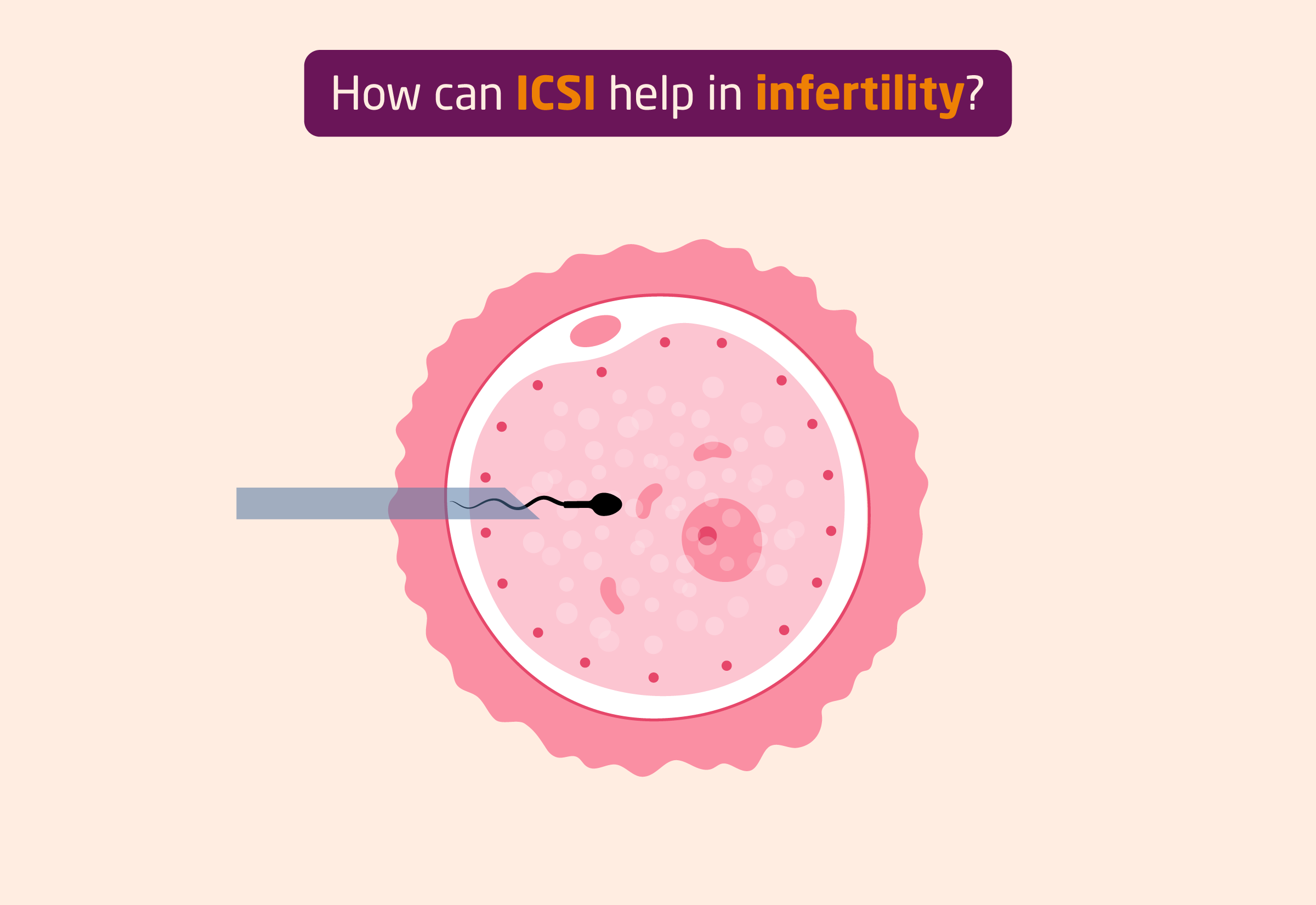How can ICSI help in infertility?
Intracytoplasmic sperm injection (ICSI) is an advanced in vitro fertilization (IVF) procedure in which a single sperm is injected directly into the cytoplasm of a human egg. This treatment assists couples who are struggling with severe male infertility or have had past fertilization failure with conventional insemination. ICSI is frequently done by some fertility clinics for every IVF cycle, while others typically save the procedure for couples who have severe infertility issues.
Why do we need ICSI?
ICSI is the best method for couples struggling with infertility to overcome these challenges if they are experiencing any of the issues listed below:
- Oligospermia or a very low sperm count
- Asthenozoospermia, commonly known as low sperm motility
- Teratozoospermia, the term for sperm that are improperly formed
- Sperm retrieved through TESE or testicular sperm extraction
- Retrograde ejaculation
- Sperm that has been frozen is being used, but it doesn’t appear to be active
- Preimplantation genetic diagnosis, or PGD, is being used
- Unexplained infertility
- Fertilization of cryopreserved oocytes
- Advanced age of female partner
- Low oocyte yield
Related: How can male infertility be treated?
What are the procedures for ICSI treatment for infertility?
- The transvaginal oocyte retrieval process is used to remove oocytes from female donors.
- On the same day that the eggs are taken, the partner’s sperm is also obtained.
- A holding pipette stabilizes the oocyte or egg by gently sucking through a microinjector.
- A single sperm is carefully picked up after being immobilized by the tail being cut off with a sharp, sensitive, and hollow needle.
- The needle is used to inject the sperm directly into the cytoplasm, and it is then carefully removed.
- To stabilize the oocyte, the polar body is placed at the 12 or 6 o’clock position.
- The egg is put into cell culture, the next day it is examined for evidence of fertilization and then in following days the embryo is observed for the growth.
After the embryo is grown for 3 to 5 days, it is inserted into the woman’s uterus. Following that, a blood test is done for the confirmation of pregnancy after 14 days.
What is the success rate of ICSI in infertility?
The fertilization rate attained in the UCSF IVF laboratory, which is currently 80 to 85 percent, provides insight into the ICSI success rate.
Through ICSI, male factor infertility couples have achieved fertilization rates of 70 to 80% for all injected eggs, which is similar to fertilization with regular sperm. In couples without a male factor infertility, the pregnancy rates obtained by ICSI are comparable to those obtained through IVF.
Related : The Ultimate IVF Guide
Takeaway
Despite the fact that some medical professionals think ICSI causes birth malformations, it’s also possible that it does so because parents who undergo the treatment run the risk of developing abnormalities. If a person wants to undergo ICSI treatment, they should speak with their doctor, who can inform them about the procedure’s dangers and side effects.
